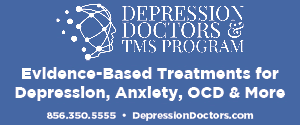Marnie Benjamin was 36 when she got married in 2008. While the “to do” list for many newly married couples might include saving up money for a new house, renovating an older home, or simply settling into your new life together, Benjamin’s list was quite simple: get pregnant.
“We were both on the older side and we both knew we wanted a family, so we started along that journey right away,” says the Marlton attorney. But after a year of trying, the couple faced the fact that they were beyond the point of conceiving naturally.
More and more women today are like Benjamin and are holding off having a baby until well into their 30s, sometimes 40s. It could be because of their career, the economy, or that they just haven’t found the right partner yet. Whatever the reason, there are options out there to make sure they can achieve their dreams of starting a family.
But does that mean they should hold off without considering the difficulty that may lie ahead? Absolutely not, says Louis R. Manara, MD, of the Center for Reproductive Medicine & Fertility in Voorhees.
While science has come a long way in helping overcome reproductive issues, it is important for women to know fertility options are not a cure-all. “There’s a little bit of a lack of knowledge about some of the technologies used,” Manara says. “[Some women] have unrealistic expectations concerning their own eggs. Most people hear of a successful pregnancy in someone’s early to mid-40s and they don’t realize that, in many cases, the successes are coming through the use of egg donation from younger women.”
Every woman is different, but reproductive potential begins to drop as early as age 32 and drastically after age 40. That doesn’t mean once you hit a certain age, you definitely won’t be able to use your own eggs, experts stress. There are, however, several things every woman should know when planning a family.
There is plenty of hope.
While Akas Jain, MD, with Delaware Valley Institute of Fertility and Genetics, says it’s a good thing in many ways that women are holding off childbirth—the delay time is used to secure a stable environment for a family—it also comes with challenges. “In many ways, it is a positive thing, except when we deal with age-related decline in reproductive function,” he says. “There may be issues or challenges in trying to achieve pregnancy and also a slight increase in complications in pregnancy.”
However, according to specialists, there are good success rates when dealing with several types of infertility—whether it’s caused by endometriosis, blocked fallopian tubes, severe male factors or ovulation disorders.
Couples should give it a good year before considering the use of fertility treatment, says Dorette Noorhasan, MD, with South Jersey Fertility Center. The wait time changes if the woman is 35 or older. Thirty-five, the average age of area patients, is the point when advanced maternal age begins, so the suggested wait time is six months.
After all, the idea of a woman’s biological clock is no joke. “As this clock ticks louder or moves ahead, there is a greater chance of difficulty with conception and also miscarriage,” says Jain.
Along with losing eggs throughout a woman’s life, the quality of the eggs is also diminishing. For that reason, David Corley, MD, of Shore IVF Reproductive Medicine in Marlton and Lakewood, says most IVF groups recommend using donor eggs around age 40-42. But, he adds, that doesn’t mean it’s impossible for a woman to use her own eggs.
“We get women in their 40s pregnant all the time,” Noorhasan agrees.
Every couple is unique.
Fertility treatment begins with an evaluation that includes testing sperm count, checking if the fallopian tubes are open, and basic hormonal and blood lab work. The closer the woman is to 40, the more tests there are that may need to be done, including a full physical and EKG. Some doctors, like Jain, will also use a maternal-fetal medicine specialist to ensure the patient is healthy enough to carry a baby to full-term.
There are three main treatment options, and each one’s use is based on a number of factors including age and cause of infertility. There are fertility pills such as Clomid that help a woman ovulate, injectables/intrauterine insemination, and in-vitro fertilization (IVF).
For the average couple, there’s a 25-30 percent chance of natural conception each month. With the pill, there’s about an eight percent chance per cycle, Corley says. With the injectables, the chances increase to around 10-15 percent; and with IVF, it goes up to 45-55 percent. All that changes with age. For a woman age 40, the chance of conception with injectables may only be 5 percent. Even with IVF, some experts say the chance is as low as 21 percent for a woman around age 40, down to 1.6 percent at age 45.
“Once age has come into the equation, it becomes the main determinant for success or failure,” says Manara.
When using the pills or injectables, a couple still must depend on nature for conception to occur. With IVF, the woman starts with a fertilized embryo. But there are still no guarantees, which is a common misconception, Corley says. Success depends on implantation on the uterine wall, so a good uterine lining is just as important as a good egg—yet another reason why age matters.
Every patient is unique, though, and that’s why treatment options are considered on a case-by-case basis. Look at Janelle, a single mother in Gloucester County who opted for intrauterine insemination with a sperm donor. At the age of 43, she falls into the small percentage of women over 42 who are able to conceive with their own egg—and it took four attempts, which is considered good.
“I have worked as a nurse in the medical field for a very long time, since college, and I’ve always wanted to fall in love, get married and have children,” she says.
She was close to having that dream, but, tragically, her boyfriend, whom she planned to marry, passed away two years ago. “All of a sudden, at 40, 41, I found myself alone and realized that if I wanted to have children, I really needed to do it now,” Janelle says. “For me, it was not a difficult decision. It was something that if I was going to have children, this is what needed to happen.”
It takes a lot of work, and it’s worth it in the end.
“I didn’t know that you could be this happy or this in love with someone; or this sleep deprived,” says Janelle, whose son is now 10 weeks old. “I didn’t know any of it. It’s amazing.”
There are many positive and negative statistics out there, but nothing speaks louder than success stories. Benjamin, who started trying to get pregnant as soon as she got married three years ago, now has a healthy 11-month-old boy. After about seven months of treatments, including Clomid and IUIs, they conceived in May 2010 through IVF and delivered baby Aaron last January.
Benjamin is now 39, and admits that her “clock is ticking.” So, less than a year later, the growing family has moved onto round No. 2 to try to give their little boy a sibling.
“[My son] is amazing,” she says. “I tell people I feel he’s the reason I’m here, that he has brought my husband and me so much closer and he’s just a blessing. Every morning we look at him and he’s laughing and smiling at us. My husband and I look at each other and say, ‘How did we get so lucky?’”
Janelle and Benjamin’s sentiments are exactly the feeling doctors work to instill in their patients. Yes, it could take several rounds of treatment and the road to starting a family might not be the one you envisioned, but the end result is all that matters.
“It’s difficult. They have their friends who are getting pregnant and everyone’s walking around with children except them,” says Noorhasan. “It’s not impossible. …There are so many ways to conceive that, for a lot of women, they can still conceive with their eggs; it’ll just take a lot of work.”
Women’s Health
When dealing with something as sensitive as personal health, women in South Jersey are turning to these top doctors to ensure they get the most specialized and sensitive care.
Cosmetic Surgery Center of Cherry Hill
Dr. Back and staff will take you by the hand and show you how the experience for achieving a more beautiful appearance is supposed to begin. Dr. Back’s goal is to create that artistic balance between enhancement and looking natural—a look that suggests you always looked this good.
Cherry Hill
(800) MAKEOVER
ILoveLyleBack.com
Delaware Valley Institute of Fertility & Genetics (DVIF&G)
Delaware Valley Institute of Fertility & Genetics (DVIF&G) is one of the leading fertility practices in Southern New Jersey and the Greater Philadelphia area. They provide a full spectrum of care tailored to fit the specific needs of each individual couple. Fertility evaluation and treatment can be stressful, time-consuming, and emotionally difficult. DVIF&G maintains a personal connection with each patient to optimize their experience, understanding that nothing is more important than providing the best care to help sustain one of the highest pregnancy rates possible. They have a strong commitment to the highest level of quality care, leading to a practice culture where patients can confidently fulfill the hope of growing their families.
Marlton
(856) 988-0072
DVIFG.com
Magaziner Center for Wellness
At Magaziner, there are alternatives to surgery. Many! You need a doctor who understands more than just illness. At Magaziner, they understand wellness. Board-certified physicians Dr. Allan Magaziner and Dr. Scott Greenberg are renowned for their clinical experience, medical expertise and compassionate healing. The Magaziner Center for Wellness has been recognized as one of the nation’s leading complementary and alternative medical centers for more than 20 years. Drs. Magaziner and Greenberg have made it their life’s work to help their patients achieve optimum health by living longer and healthier lives.
Cherry Hill
(856) 424-8222
DrMagaziner.com
Dr. Louis R. Manara, The Center for Reproductive Medicine & Fertility
In the past decade, scientists have developed an egg freezing technology termed "vitrification" which results in excellent survival, fertilization, and live birth rates upon thawing. This technology represents an important option for any woman facing cancer chemotherapy during her reproductive years and is also an important option for women who must delay childbirth for social or career reasons. While research is ongoing regarding this technology, it seems likely based upon our 25-year experience with embryo freezing that egg freezing will prove to be equally safe with respect to the children born through the use of this technique.
Voorhees
(856) 767-0009
LouisManara.com
Shore IVF Reproductive Medicine
Shore IVF Reproductive Medicine and Dr. Allen Morgan are pleased to announce Dr. David Corley is joining Shore and he is back in the Marlton/Medford area. Shore's experienced, dedicated staff offers complete individualized and personalized care for the infertile couple. Their services include artificial insemination, semen analysis, laparoscopic laser surgery, treatment of abnormal periods, endometriosis and fibroids, in-vitro fertilization and egg donors. They help you achieve your goal, using the most up-to-date technology in the world.
Marlton
(856) 334-8030
ShoreIVF.com
South Jersey Fertility Center, Division of Regional Women's Health Group LLC
Infertility is prevalent. You are not alone. It is important to get a thorough evaluation from an infertility specialist. Some couples have more than one cause of infertility. Contrary, other couples have completely normal testing and still have difficulties conceiving. Hence they have a diagnosis of “unexplained infertility.” Initially, your doctor will order testing including blood work, ultrasound, hysterosalpingogram and semen analysis. During the treatment cycles, you will frequently visit the office. The infertility diagnosis, the treatments and seeing other couples with children (while you are still actively working on having a child) can be a huge emotional burden. Counselors and support groups are available.
Marlton & Sewell
(856) 596-2233
SJFert.com
Published (and copyrighted) in South Jersey Magazine, Volume 8, Issue 9 (December, 2011).
For more info on South Jersey Magazine, click here.
To subscribe to South Jersey Magazine, click here.
To advertise in South Jersey Magazine, click here












